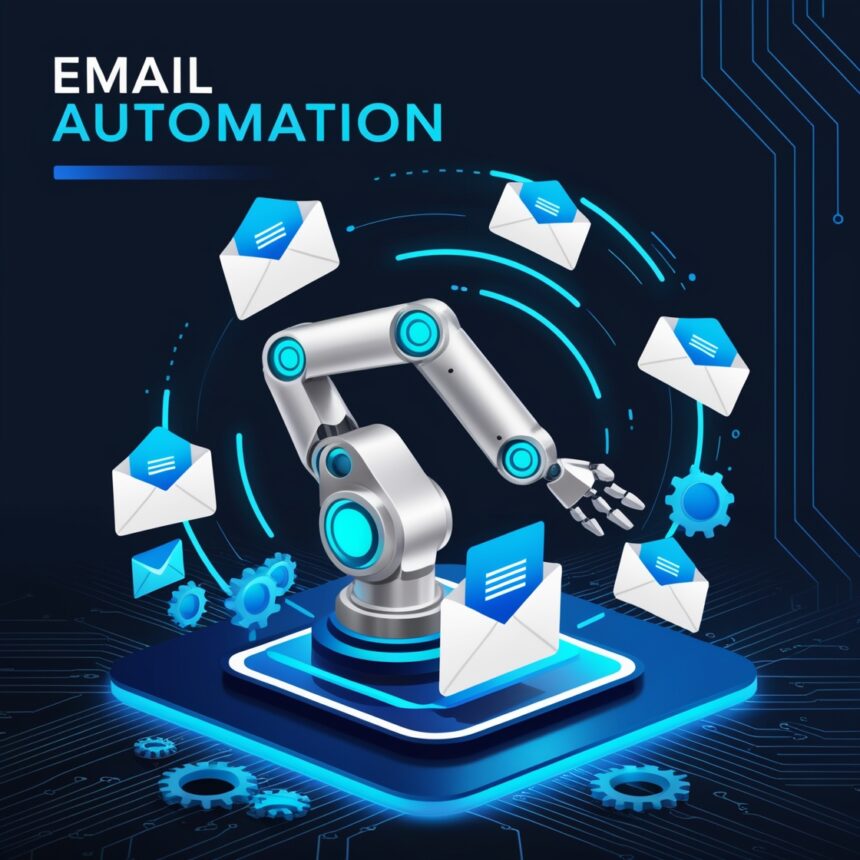As businesses evolve in their communication strategies, the need for seamless, personalised, and efficient customer interactions has become paramount. Automated chatbots, particularly in the WhatsApp ecosystem, offer an innovative solution for businesses to meet these demands. By combining automated responses with other tools such as drip email campaigns and RCS messaging, companies can create a unified, powerful marketing strategy that maximises engagement and conversions.
What Are Automated Chatbots on WhatsApp?
Automated chatbots on WhatsApp are AI-driven tools programmed to simulate human conversations. These bots can handle inquiries, guide users through purchase processes, and even resolve common issues without human intervention.
Key Features of WhatsApp Chatbots:
- Instant Responses: Respond to queries in real time.
- 24/7 Availability: Ensure customers are never left waiting.
- Personalisation: Tailor responses based on customer data and preferences.
- Integration Capabilities: Sync with platforms like MSG91, CRMs, and email marketing tools.
Why Use Automated Chatbots for WhatsApp Marketing?
The advantages of incorporating chatbots into WhatsApp marketing strategies are numerous:
- Scalability: Handle thousands of conversations simultaneously.
- Cost Efficiency: Reduce the need for large customer support teams.
- Improved Engagement: Keep customers engaged with timely and relevant responses.
- Seamless Integration: Connect with other communication channels like RCS messaging and email campaigns for a unified strategy.
Enhancing WhatsApp Chatbots with RCS Messaging
RCS (Rich Communication Services) adds a layer of interactivity to traditional messaging, enabling businesses to deliver multimedia content like images, videos, and clickable buttons.
How RCS Complements WhatsApp Chatbots:
- Rich Media Integration: Send product carousels or video tutorials to supplement chatbot conversations.
- Wide Audience Reach: Engage customers who may not be WhatsApp users through RCS-enabled SMS.
- Automated Campaigns: Use triggers to send RCS messages when customers interact with your chatbot.
How to Send RCS Messages:
- Choose an RCS-Enabled Platform: Work with providers like MSG91 for smooth implementation.
- Create Dynamic Content: Design engaging templates with interactive elements.
- Set Automation Triggers: Define actions (e.g., a completed purchase or inquiry) that prompt RCS messages.
Integrating Chatbots with Drip Email Campaigns
A drip email campaign is a series of automated emails sent based on specific actions or timelines. Combining these campaigns with WhatsApp chatbots ensures that customers are engaged across multiple touchpoints.
How Chatbots and Drip Emails Work Together:
- Trigger-Based Emails: For example, when a customer interacts with the chatbot but doesn’t complete a purchase, a follow-up email can be sent.
- Customer Journey Mapping: Chatbots can capture customer data to personalise drip email campaigns.
- Cross-Channel Engagement: Follow up a chatbot interaction with an informative email for deeper engagement.
Steps to Create Drip Email Campaigns:
- Define Goals: Decide what action you want customers to take, such as completing a purchase or signing up for a webinar.
- Segment Your Audience: Categorise users based on interactions with the chatbot.
- Automate the Workflow: Use platforms like MSG91 to set up email sequences triggered by specific actions.
Real-World Applications of WhatsApp Chatbots
E-Commerce:
- Chatbots can guide users through product catalogues, answer queries, and share shipping updates.
- Follow up with RCS messages showcasing related products or drip emails with exclusive discounts.
Healthcare:
- Patients can use WhatsApp bots to schedule appointments or receive prescription reminders.
- RCS messages can deliver health tips, while drip emails can educate patients on treatments.
Travel and Hospitality:
- Chatbots handle booking inquiries and provide travel updates.
- RCS messages can highlight package deals, and drip emails can share itineraries or post-trip surveys.
Building a Unified Strategy with WhatsApp Chatbots
- Automate Common Tasks:
Use chatbots for routine inquiries like order tracking, FAQs, or account updates. - Integrate Multiple Channels:
Combine WhatsApp with RCS messaging and email campaigns for a cohesive communication strategy. - Leverage Analytics:
Use data from chatbot interactions to refine email campaigns and design more effective RCS content. - Personalise at Scale:
Tailor messages and responses based on user preferences captured through the chatbot.
Best Practices for Implementing WhatsApp Chatbots
- Ensure Compliance: Adhere to GDPR and other data protection laws by obtaining user consent.
- Focus on User Experience: Design chatbots to be intuitive and user-friendly.
- Test Thoroughly: Regularly test chatbot workflows to ensure smooth functionality.
- Monitor Performance: Analyse metrics like response time, user satisfaction, and engagement rates.
Automated chatbots are transforming WhatsApp marketing by providing instant, personalised, and efficient communication. When combined with RCS messaging and drip email campaigns, they enable businesses to engage customers across multiple touchpoints, fostering loyalty and driving conversions. By adopting a unified strategy and leveraging the strengths of each channel, businesses can ensure their communication efforts are impactful and customer-focused.
Start integrating these tools into your strategy today, and experience the difference a cohesive, automated approach can make in customer engagement and business growth.










 /home/u448362301/domains/theexpotab.com/public_html/wp-content/themes/foxiz/templates/popup.php on line 167
/home/u448362301/domains/theexpotab.com/public_html/wp-content/themes/foxiz/templates/popup.php on line 167